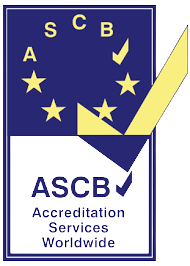Table of Content
Introduction
Remote hiring has undergone drastic changes in the last few years. After the pandemic, job displacements, major global layoffs in the tech industry, and the AI revolution in HR and other sectors, employees now prioritise their well-being more than ever. They want to work at a firm where they can contribute and work remotely or flexibly to enjoy the best of their personal and professional life. Thus, it’s time that we evaluate the future of remote hiring as sincerely and thoughtfully as possible.
This knowledge will only help new-age and first-time recruiters or talent hunters. They will know the gradual importance of remote working and remote staffing needs, especially in knowledge-based industries, where importance and emphasis are on the quality of the work deliverables, not the prime workplace location.
So, read the post ahead, make smarter decisions, build an empire of remotely led organisations, and win big at remote hiring when you have automated ATS implemented in the first place.
Want to skip the post?

What are the top future of remote hiring trends to watch out for this year?
- Hybrid Work Models
Expect employers and recruiters to create more hybrid work models. It means they will be hiring the best talent literally from anywhere in the country or the world. Employers will be ready to shift the work modules as per the right hiring needs, irrespective of the work locations of the right candidate.
- Global Talent Acquisition
One of the infamous future of remote hiring trends is this one to watch out for in 2024. Employees are eager to work for globally recognised firms, even when they’re operating from their homes.
So are the expectations of the global-grade firms. They will be willing to hire more talent from across the border at cost-effective rates when they infuse smart tech like AI-enabled HRMS to make faster data-driven remote hiring decisions.
- Advanced Technology Integration
Remote hiring in the upcoming future will see a new rise in the adoption of AI and EI-enabled tech. It will be easier for the recruiter to generate job descriptions, interview assessment questions, probation confirmation questions, KRA templates, and even skillset checklists as per a defined job role.
Not only that, they can easily integrate multiple apps and modules into their existing recruitment engine to increase their productivity and efficiency in hiring remote talent.
For example, job portals can have seamless integration with the organisation’s career page. This will automatically allow recruiters to get resumes at the backend whenever there is a new application. They will no longer be using multiple apps or interfaces to read, profile, or shortlist a resume.
- Focus on Soft Skills
One of the trends for the future of remote hiring is totally focused on skills-based hiring. That means even remote employees have to fight the battle to stand out in the market. They must continuously be upgrading themselves and their knowledge to get spotted and selected by their dream companies.
- Remote Onboarding Innovations
Remote onboarding innovations are to take a steeper step into the world of HRD. There will be more AI and EI-enabled tools that recruiters can leverage when hiring remote talent and onboard them seamlessly.
For instance, recruiters can infuse the preboarding link onto the offer letter acceptance letter. That way, they do not have to be stuck in the endless loop of follow-ups with the shortlisted candidate.
The smart and intelligent candidate finds the pre-board link in their offer letter, accepts it, and starts filling out the documents themselves as per the guided instructions of the software.
It saves manual and emotional effort, which earlier each recruiter invested and lost multiple hours per hire.
- Diversity, Equity, and Inclusion (DEI) Prioritization
When employers are hiring remotely, they must do it fairly. That means more emphasis will be placed on equitable, diversified, and inclusive hiring practices, even for remote employees. That means hiring someone based on their projects, skills, calibre, potential, and vision/mission alignment with the organisation's goals for a seamless transition.
- Data-Driven Recruitment
Recruiters will be diving deep when it comes to data-driven recruitment decisions for remote employees. They will leverage hiring analytical tools like the one we offer with HRMS to understand past trends and historical data and know the effective and economical approaches to onboard the best talent out there.
- Emphasis on Seamless Candidate Experience
One of the future trends to watch out for in the remote hiring era is providing a seamless candidate experience. That means helping them engage with the company policies, culture, updates, and reminders automatically.
Recruiters can schedule reminders, updates, and follow-up emails to their candidates. This eliminates the need for the recruiter to interfere. An intelligent candidate will follow the email trail and complete tasks independently to onboard themselves or confirm the interview timings.
This saves everyone heaps of hours, earlier wasted in endless and mindless follow-up email trails.
Conclusion
This blog talked about the top 8 future of remote hiring trends. You can implement those in your organisation when you work around modern recruitment and onboarding models or software like ours. Then, you can continue to find new trends, updates, and upgrades on the tool to improve the quality and TAT of your remote hiring processes on the go.
FAQs on the Future of Remote Hiring
Q: Are traditional hiring processes being replaced by virtual recruitment methods?
A: Virtual recruitment methods are becoming more prevalent, but traditional processes still hold value. Many companies are adopting a hybrid approach, incorporating virtual elements into the hiring process while retaining essential face-to-face interactions.
Q: What role will technology play in remote hiring?
A: Technology is integral to remote hiring, with tools like video interviews, AI-driven assessments, and virtual onboarding gaining prominence. These technologies enhance efficiency, reduce bias, and provide a seamless remote hiring experience.
Q: How can employers ensure a positive remote onboarding experience for new hires?
A: Employers can ensure a positive remote onboarding experience by offering comprehensive digital resources, facilitating virtual introductions and mentorship, and incorporating interactive elements to make the process engaging and informative.
Q: Will remote hiring impact diversity, equity, and inclusion (DEI) efforts?
A: Remote hiring has the potential to enhance DEI efforts by broadening access to a diverse talent pool. However, companies need to be proactive in addressing potential challenges and implementing inclusive practices throughout the remote hiring process.












